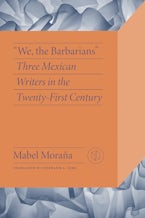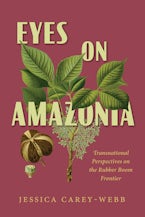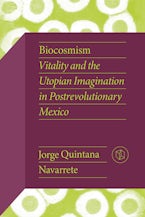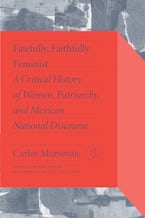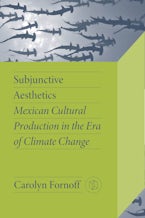- Home
- The Golden Leaf

The Golden Leaf
How Tobacco Shaped Cuba and the Atlantic World
A Choice Reviews Editors' Pick
Through the rise and fall of empires, ideologies, and economies, tobacco grown on the tiny island of Cuba has remained an enduring symbol of pleasure and extravagance. Cultivated as one of the first reliable commodities for those inhabitants who remained after conquistadors moved on in search of a mythical wellspring of gold, tobacco quickly became crucial to the support of the swelling Spanish Empire in the seventeenth and eighteenth centuries. Eventually, however, tobacco became one of the final stabilizing forces in the empire, and it ultimately proved more resilient than the best laid plans of kings and queens. Tobacco, and those whose livelihoods depended on it, shrugged off the Empire's collapse and pressed on into the twentieth century as an economic force any state or political power must reckon with.
Cosner explores the history of this golden leaf through the personal narratives of farmers, bureaucrats, and laborers, all struggling to build an independent and lucrative economic engine. Through conquest, rebellion, colonial and imperial schemes, and the eventual Communist revolution, Cuban tobacco and cigars became a luxury item that commanded loyalty that defied mere borders or embargoes. Ultimately, The Golden Leaf is a story of two carefully cultivated products: Cuban tobacco, and its lofty reputation.
Through the rise and fall of empires, ideologies, and economies, tobacco grown on the tiny island of Cuba has remained an enduring symbol of pleasure and extravagance. Cultivated as one of the first reliable commodities for those inhabitants who remained after conquistadors moved on in search of a mythical wellspring of gold, tobacco quickly became crucial to the support of the swelling Spanish Empire in the seventeenth and eighteenth centuries. Eventually, however, tobacco became one of the final stabilizing forces in the empire, and it ultimately proved more resilient than the best laid plans of kings and queens. Tobacco, and those whose livelihoods depended on it, shrugged off the Empire's collapse and pressed on into the twentieth century as an economic force any state or political power must reckon with.
Cosner explores the history of this golden leaf through the personal narratives of farmers, bureaucrats, and laborers, all struggling to build an independent and lucrative economic engine. Through conquest, rebellion, colonial and imperial schemes, and the eventual Communist revolution, Cuban tobacco and cigars became a luxury item that commanded loyalty that defied mere borders or embargoes. Ultimately, The Golden Leaf is a story of two carefully cultivated products: Cuban tobacco, and its lofty reputation.
Charlotte Cosner is Assistant Professor of History at Western Carolina University.
"Tobacco offers a prism through which to view the tension between Spain and Cuba. Cosner addresses the way that tobacco tied together various disparate social groups within Cuba and beyond its shores. Using family histories, The Golden Leaf shows the way that tobacco connected various members of tobacco-growing communities, from estate owners, to slaves, to freedmen, priests, soldiers, and island elites. The role of women in tobacco also makes a surprisingly pleasant appearance. Cosner's discussion of tobacco growing by enslaved peoples and freed peoples in Cuba is also interesting and insightful."
—Frederick H. Smith, author of Caribbean Rum: A Social and Economic History
"[A] welcome departure from the conventional sugar-centered narrative of [Cuba]'s history. . . . Among the first English-language monographs to provide an in-depth study of Cuban tobacco, the book will have broad appeal among students of Cuba and Latin America. . . . Highly recommended."
—Choice
"[A] well-researched volume on Cuban leaf from the eighteenth century to the early nineteenth century. . . . The Golden Leaf is a refreshing contribution to Cuban tobacco based on extensive archival research."
—Agricultural History
"[Cosner] convincingly shows that tobacco was in fact fundamental to the Spanish colonial project. . . . [She] also provides much material to illustrate how tobacco cultivation, processing, and trade encompassed a very wide cross section of the Cuban population, at every level. . . . Cosner succeeds in bringing us an engaging story that ranges from the detail of individual local human lives and relations, through the complexity of national society and its institutions, to the global stage of empire and commodity trade."
—Hispanic American Historical Review


